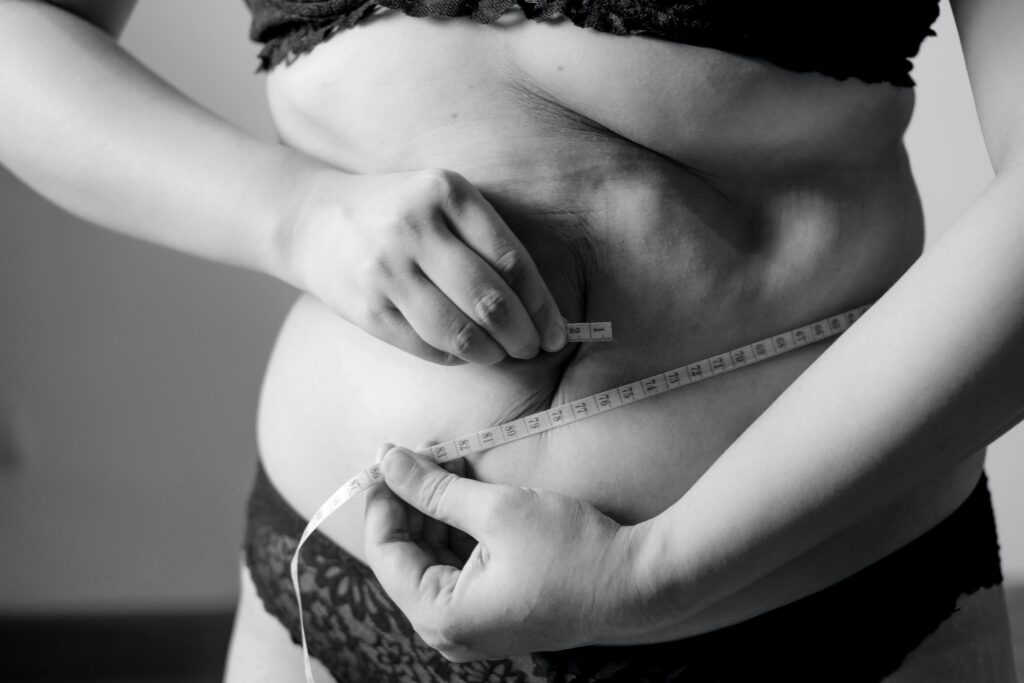Alcohol abuse is commonly associated with its detrimental physical effects, such as liver damage and cardiovascular diseases. The harm it inflicts on one’s physical health is undeniable. However, there is a crucial aspect of alcohol abuse that often goes unnoticed: its profound impact on self-esteem and body image.

When it comes to understanding the link between alcohol addiction and self-esteem/body image issues, we may find ourselves caught in a vicious circle. Low self-esteem can be a cause as well as a result of alcohol abuse. The negative emotions and consequences associated with excessive drinking can severely erode one’s sense of self-worth and confidence. As a result, individuals may spiral into destructive drinking patterns, seeking solace in alcohol to cope with their deteriorating self-esteem and body image concerns.
It’s important to understand how alcoholism, self-esteem, and body image are connected in order to help people in alcohol rehab effectively. Let’s take a deeper look and shed some light on this lesser-explored aspect of alcohol abuse.
Self-Esteem and Alcohol Addiction
Self-esteem, the perception and evaluation of one’s own worth, plays a crucial role in an individual’s overall well-being. It encompasses feelings of self-acceptance, self-confidence, and self-respect. However, alcohol addiction can profoundly impact self-esteem and result in negative emotions.
Firstly, individuals struggling with alcohol addiction often experience overwhelming feelings of guilt, shame, and self-blame. They may be burdened by the consequences of their actions while under the influence, damaging their self-image and worsening their emotional distress.
Secondly, alcohol addiction can diminish one’s sense of self-worth and confidence. Continuous substance abuse can lead to a feeling of loss of control, making individuals doubt their abilities and value. They may start seeing them as flawed, weak, or unworthy. This diminished self-worth further perpetuates the cycle of addiction as individuals may resort to alcohol as a coping mechanism.
Body Image and Alcohol Addiction
Body image refers to an individual’s perception of their own physical appearance and how they feel about their body. It holds significant importance as it can profoundly impact self-esteem, mental health, and overall well-being. For individuals struggling with alcohol addiction, body image issues often come into play.
Alcohol abuse can lead to physical changes in appearance. Chronic alcohol consumption can cause weight gain or loss, bloating, skin problems, and other visible signs of poor health. These changes can contribute to negative body image perceptions, further diminishing self-esteem. Moreover, societal pressure and comparisons can lead to dissatisfaction and make things worse.
Alcohol addiction can serve as a coping mechanism for body image dissatisfaction. Some individuals turn to alcohol to numb the negative emotions associated with their perceived body flaws or gain temporary confidence in social situations.
The Cycle of Alcohol Addiction, Self-Esteem, and Body Image
Alcohol addiction, self-esteem, and body image are interconnected, influencing and reinforcing one another. Low self-esteem and negative body image can contribute to alcohol addiction as individuals may turn to alcohol as a means of escape, self-medication, or self-soothing.
Low self-esteem and negative body image can create feelings of inadequacy, isolation, and distress, increasing vulnerability to alcohol abuse. The temporary relief provided by alcohol can become a vicious cycle as individuals rely on it to cope with their emotional and body image-related struggles.
On the other hand, alcohol addiction further exacerbates self-esteem and body image issues. In addition, the physical and mental toll of alcohol abuse can worsen self-esteem and body image concerns, leading to feelings of inadequacy.
Seeking Help and Recovery
Recognizing the profound impact of alcohol addiction on self-esteem and body image is vital for comprehensive treatment and recovery. Addressing and rebuilding self-esteem can go a long way when it comes to helping individuals break free from the grip of alcohol abuse and regain a positive sense of self.
If you or anyone you know is struggling with alcohol addiction and related self-esteem or body image problems, it’s important to seek help and support. Rehab programmes address self-esteem and body image concerns during the recovery process. Addiction counselling and therapy sessions provided by rehab centres can help individuals develop healthier coping mechanisms, rebuild self-esteem, and develop a positive body image. Recovery is possible, and by seeking professional assistance, you can embark on a journey towards a better and more positive self-image.

